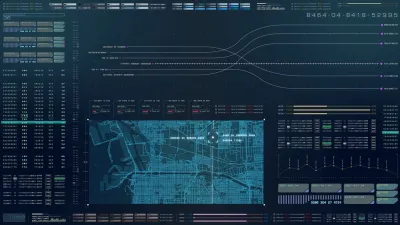Three California schools are seeking to quantify the effects of efficiency-conscious driving in a study to establish a baseline for drivers' behavior.
Researchers at the University of California are developing a study on how drivers change their behavior when they have access to instantaneous information on the efficiency of their driving.
The first-of-its-kind study, led by UC Berkeley, UC Riverside and UC Davis, attempts to quantify the effects of efficiency-conscious driving, known as "eco-driving," a way of altering driving behavior to reduce fuel use and, consequently, emissions. Strategies like "shifting to a higher gear as soon as possible, maintaining steady speeds, anticipating traffic flow, accelerating and decelerating smoothly [and] keeping the vehicle in good maintenance" can yield improvements of 5 to 15 percent in fuel economy, according to a pilot evaluation from UC Riverside.
Thanks to Garrett Bradford
FULL STORY: Using Instant Feedback for “Eco-Driving”

Maui's Vacation Rental Debate Turns Ugly
Verbal attacks, misinformation campaigns and fistfights plague a high-stakes debate to convert thousands of vacation rentals into long-term housing.

Planetizen Federal Action Tracker
A weekly monitor of how Trump’s orders and actions are impacting planners and planning in America.

San Francisco Suspends Traffic Calming Amidst Record Deaths
Citing “a challenging fiscal landscape,” the city will cease the program on the heels of 42 traffic deaths, including 24 pedestrians.

Defunct Pittsburgh Power Plant to Become Residential Tower
A decommissioned steam heat plant will be redeveloped into almost 100 affordable housing units.

Trump Prompts Restructuring of Transportation Research Board in “Unprecedented Overreach”
The TRB has eliminated more than half of its committees including those focused on climate, equity, and cities.

Amtrak Rolls Out New Orleans to Alabama “Mardi Gras” Train
The new service will operate morning and evening departures between Mobile and New Orleans.
Urban Design for Planners 1: Software Tools
This six-course series explores essential urban design concepts using open source software and equips planners with the tools they need to participate fully in the urban design process.
Planning for Universal Design
Learn the tools for implementing Universal Design in planning regulations.
Heyer Gruel & Associates PA
JM Goldson LLC
Custer County Colorado
City of Camden Redevelopment Agency
City of Astoria
Transportation Research & Education Center (TREC) at Portland State University
Jefferson Parish Government
Camden Redevelopment Agency
City of Claremont





























